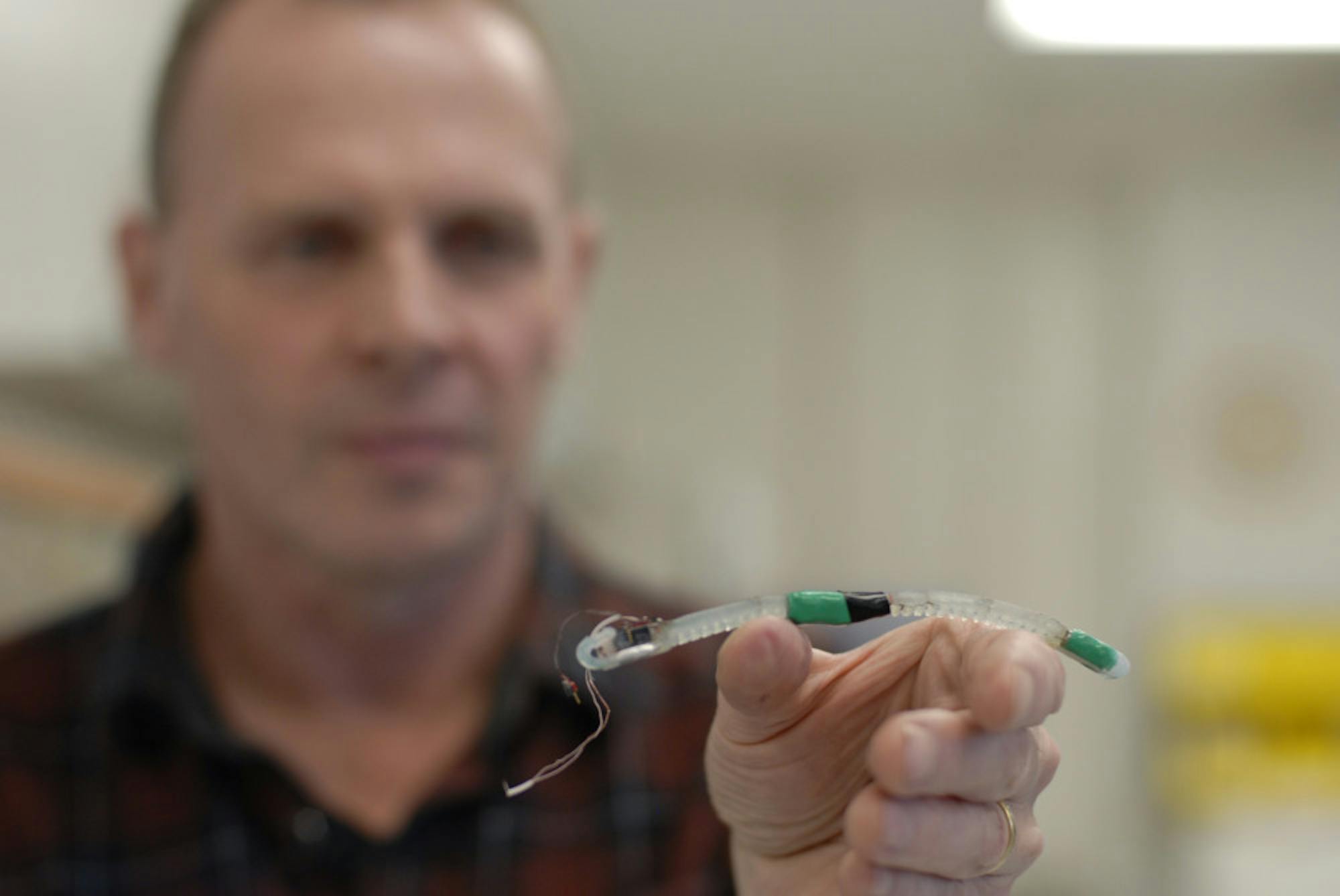Barry Trimmer, a Henry Bromfield Pearson Professor of Natural Sciences in the Tufts biology department, and his colleague Vishesh Vikas, former biology postdoctoral scholar at Tufts and current assistant professor of mechanical engineering at the University of Alabama, received a National Science Foundation (NSF) grant in September for their project, “M3SoRo: Mobility and Morphing using Modular Soft Robots."
The purpose of the grant is “to develop collaborative Modular Soft Robots (MSoRos) that can move in complex terrestrial and climbing environments and change size and shape,” according to the award abstracts. The abstracts explain that the project, estimated to be completed by August 2021, has been awarded $581,534 total in funding.
According to a February article published in Materials Research Society Advances, soft robots are elastic, flexible robots that contain all major power and control systems in one body. These differ from hard robots, which are rigid, more complex and built in a way that separates their functions across different components.
NSF gave the grant as part of its National Robotics Initiative, according to Vikas, the principal investigator of the grant. Vikas explained that the goal of the project is to explore the advantages of soft robots and modular robots and come up with models of soft robots which are cheap, versatile and adaptive to complex environments. He added that the field of soft robots and modular robots is under-researched despite applications in precision agriculture, space exploration and disaster relief.
According to Vikas, locomotion functions differently in different types of environments. He said that the project uses an environment-centric algorithm that investigates the robot's interactions with the environment, instead of using the traditional model-centric algorithm that focuses on what humans want the robot to do.
Trimmer said that traditional robots are constrained by their working environments. They cannot work near people or carry out tasks in complex environments, while modular soft robots can.
According to Anthony Scibelli, a biology Ph.D. candidate working in Trimmer’s lab, soft robots are not designed to resemble humans and perform delicate tasks but to navigate and function in environments that are not suitable for humans. That requires that the robots are able to move on different surfaces and around obstacles.
A major goal of the project is to control soft robots, a challenge many researchers are trying to tackle, according to Trimmer.
Trimmer, who is also the director of the Neuromechanics and Biomimetic Devices Laboratory at Tufts, said that studying the brains of soft animals, like caterpillars, can bring the solution to controlling soft robots.
“That’s why a neurobiologist like me is involved in robot research, because we think we know some of the tricks that animals employ to control their bodies and we can try to adapt that to engineering,” he said.
Trimmer explained that the current task of the project is more about figuring out the basics of how to control soft robots than building a perfect one.
Scibelli said the project's goal is to use biological design to solve complex locomotion problems.
William Messner, a Tufts mechanical engineering professorwho worked with Trimmer on the award proposal, said that the challenge of the project is understanding the movements of the robots, specifically climbing and the control of tendons.
In addition to being more adaptable than hard robots, soft robots are less expensive. Unlike traditional robots, they do not have to balance themselves while working, which makes them relatively simple and thus cost-effective, according to Scibelli.
Vikas said that the project's collaborators have complementary skill sets, ranging from mechanical engineering to neurobiology. He added that he worked closely with Trimmer on the project, meeting online twice a week to brainstorm and sometimes exchanging student research assistants.
According to Scibelli, he and four others are working with Trimmer at the Neuromechanics and Biomimetic Devices Laboratory. Trimmer mentioned that though there are no undergraduate students working on the project yet, interested undergraduates are welcome to join the team.
Trimmer said that the NSF money might be used to purchase necessary materials for the project or to hire graduate student research assistants. Scibelli said that the NSF grant provided him funding for two years of research and that it might also be used to purchase and maintain 3D printers, which have been used to print out soft robots models.
“When we complete this project, we will be able to show young minds the real-life morphing soft robots that will excite the next generation to get attracted towards robotics,” Vikas said.
Correction: A previous version of this article incorrectly reported the total funding awarded to the project as $382,192. This amount was the University of Alabama's portion; the total funding awarded, including Tufts' portion is $581,534. The article has been updated to reflect this change. The Daily regrets this error.
Tufts, U of Ala duo receive National Science Foundation grant

Barry Trimmer, director of the Neuromechanics and Biomimetic Devices Laboratory, poses for a portrait with one of his robots on Oct. 17.





